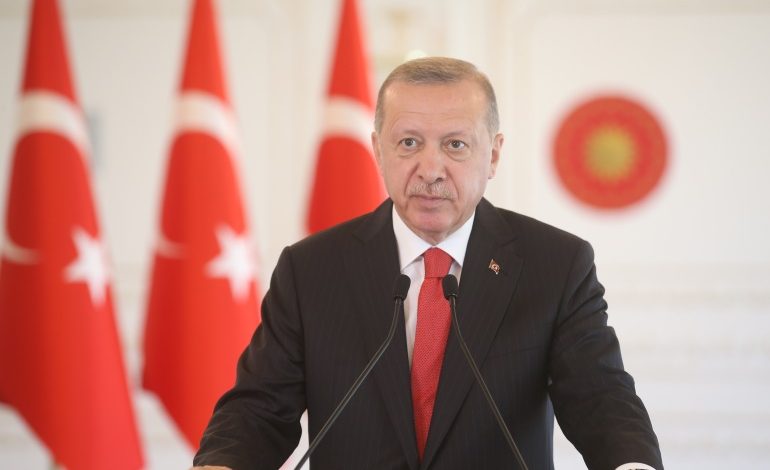Turkey – Erdogan violates religious freedoms and rights

Turkey’s Supreme Court has ruled that forcing minors to receive religious education against their parents’ will violates their rights, but will the government listen?
The experts stressed that the decision of the Supreme Court of Turkey that compulsory religious lessons violate freedom of religion supports the two previous judgments of the European Court of Human Rights which criticized Ankara on the principle and content of compulsory religious education.
Experts questioned whether President Recep Tayyip Erdogan’s government would follow the court’s directives or insist on violating the rights of young children and their parents to free education.
Legal battle
Analysts say last week’s ruling by the Constitutional Court follows a long legal battle by Hussein El, who wanted his daughter Nazli out of compulsory education more than a decade ago because its content was incompatible with his religious and philosophical beliefs.
The headmaster insisted that Nazli Seren El, a fourth-grader at the time, should take the course because only Christian and Jewish citizens in Turkey could be exempted, while Nazli Seren El is not, even though she and her father are Alawites.
But El insisted that it didn’t matter much whether he was an Alawite, a Jew or an atheist, challenging the concept of compulsory religious courses and his right to prevent his son from attending them.
According to the Monitor website, his lawyer Esraa said, “We argued that forcing a parent to disclose or document his faith is also a violation of Article 24 of the constitution, which states that no one can be forced to disclose his religious beliefs”.
Ankara’s Court of First Instance ruled in favor of El 13 years ago, saying he had the right to remove his daughter from the classroom based on domestic law, international conventions and a similar ruling by the Strasbourg-based European Court of Human Rights, but the Education Ministry appealed the case to the State Council, which overturned the decision and, finally, arrived at the Constitutional Court’s office in 2014.
Eight years later, on 7 March, the Constitutional Court ruled that the refusal of the father’s request to withdraw his child from the classroom violated the parents’ rights to educate their minor children according to their religious and spiritual beliefs. The decision said the school’s refusal to remove Eil from the classroom violates the freedom of religion and conscience enshrined in Article 24.
Pasbakal said: “We have to wait for the full verdict, but, ideally, the verdict should be broad about the concept of freedom of religion and create a precedent for people in similar situations who do not want their children to take these lessons because of their religious and philosophical beliefs.”
Delayed decision
Orhan Kamal Jenkins, a human rights lawyer, said: “This is a belated decision, but it is a step in the right direction – domestic courts often ignore the ECHR’s decisions, but now must respond to the ECHR’s decisions”.
Eyewitnesses revealed that conservatives in Turkey strongly criticized the decision. Some of them even described the decision as a scandal from the Constitutional Court, asserting that describing the religious lessons of the youth of these lands, which were shaped by Islam, as a violation of human rights is nothing but a betrayal.
“Our people will not allow such treachery”, said Mehmet Akef Yilmaz, a member of parliament’s education committee and a member of the ruling Justice and Development Party.
Jonal Corson, a human rights lawyer and former president of Human Rights Agenda, said: “The MP’s statement is a blatant distortion of what the ruling says, and neither the Constitutional Court nor the previous rulings of the European Court of Human Rights place any obstacles to obtaining religious education for those who want it, but simply says that these lessons should not be imposed on those who do not want them”.
Turkish violation
Analysts have asked, will the Constitutional Court’s decision provoke any action by President Erdogan’s government, or will it be ignored like the 2007 and 2014 European Court of Human Rights rulings?
Both judgments say that compulsory lessons violate people’s basic right to education. In both cases, the case’s main applicants were from an Alawite background and complained that their children were learning a Sunni understanding of Islam.
A human rights source said: “If the government wants to do anything, there are three paths it can take”.
It can create a neutral religious class, with equal status to all religions and beliefs”, he said. “The second is to make religious courses optional again, as was the case before 1980, and the third is to simply allow students to withdraw from religious classes with a simple request, one form from their parents without having to reveal their beliefs”.












